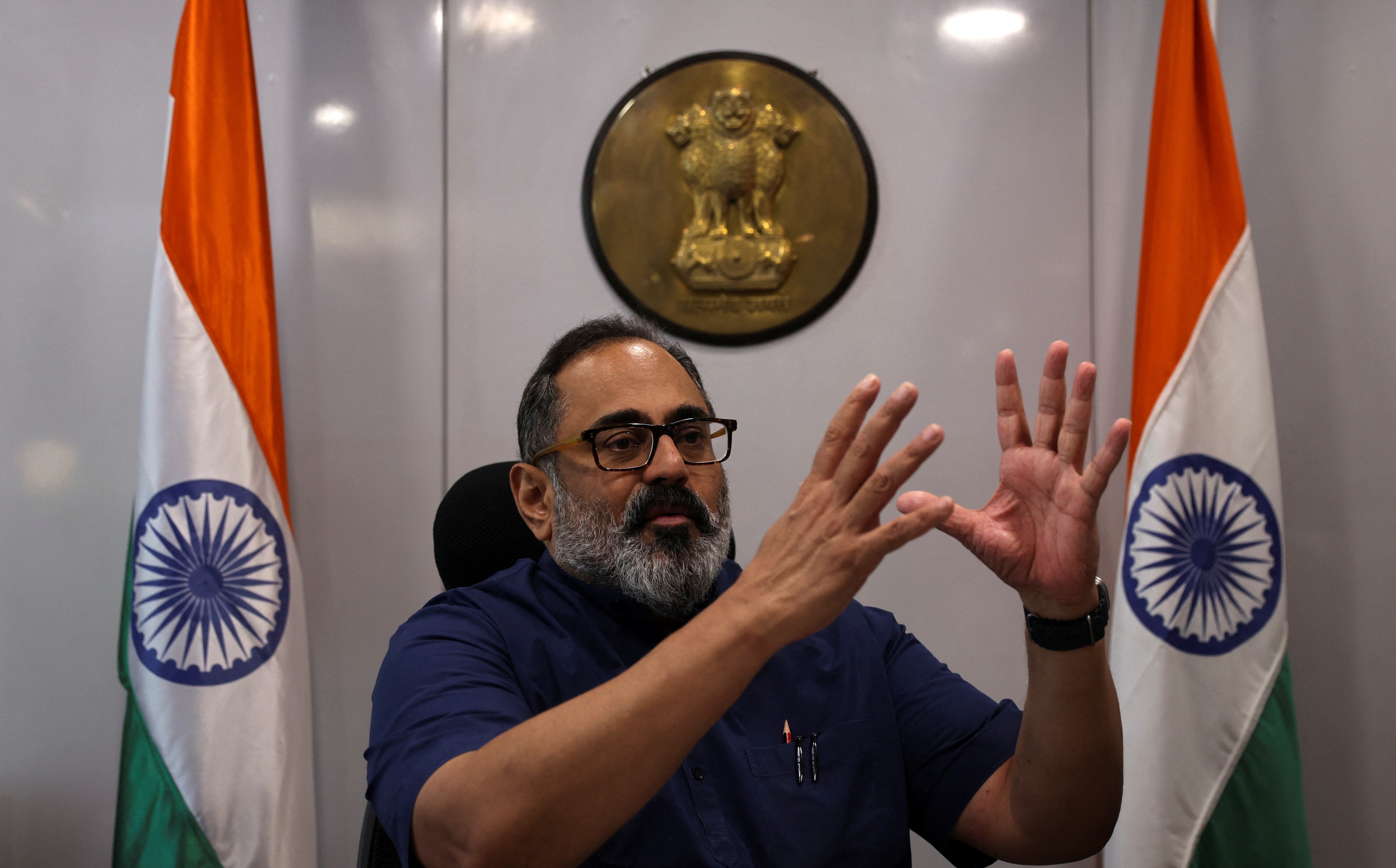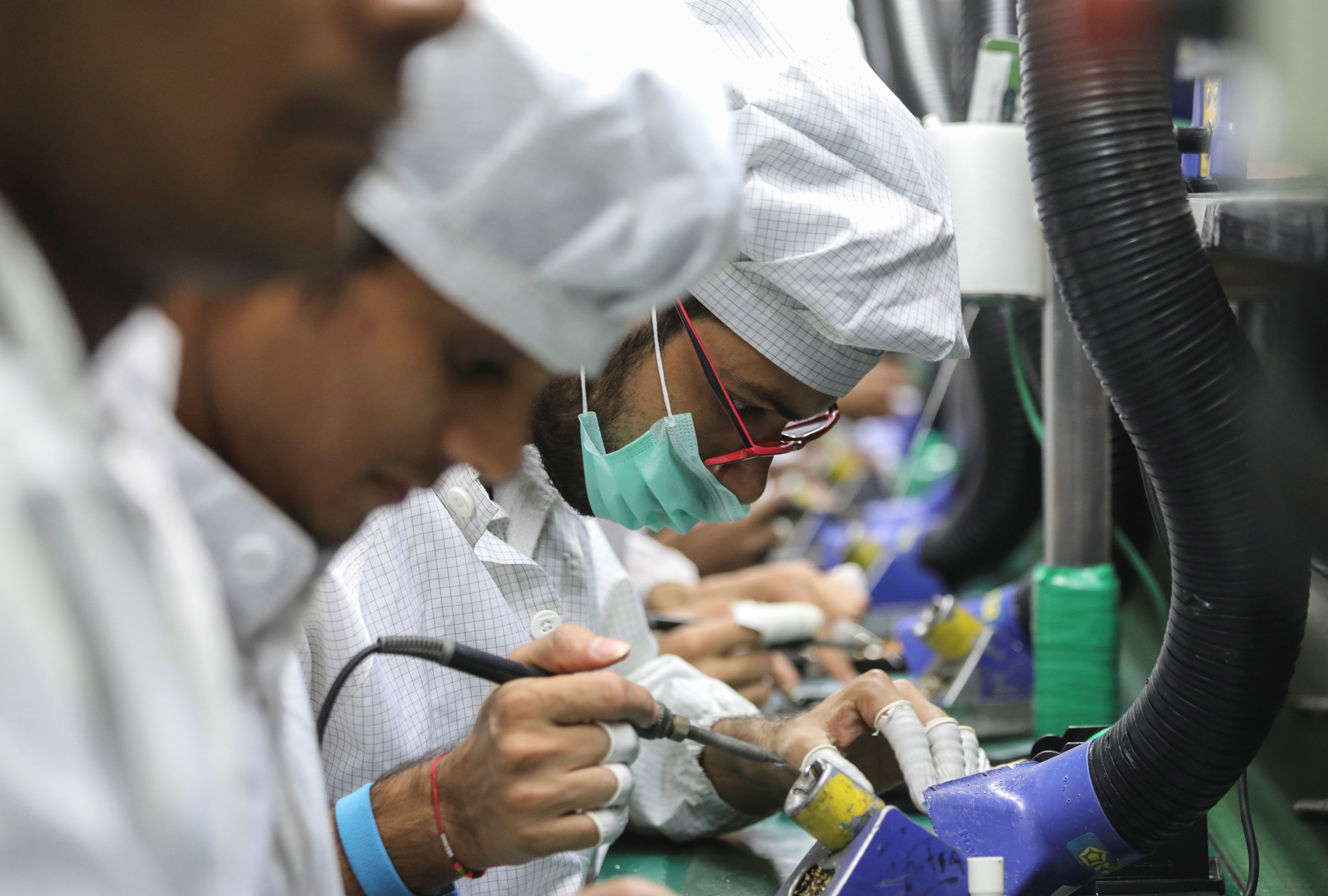India risks losing out to China and Vietnam as it seeks to become a major smartphone export hub and must "act fast" to lure global companies with lower tariffs, the deputy IT minister said in government documents seen by Reuters.
Smartphone manufacturing is a key plank of Prime Minister Narendra Modi's ambitions to boost the economy and create jobs by attracting companies such as Apple, Foxconn, and Samsung, to India, the world's second-largest mobile market where production grew 16% year-on-year to $44 billion last year.
That success, Modi's government says, is mostly due to financial incentives given to companies to produce more. But lawmakers and lobby groups for Apple and other firms argue India's high tariffs are a deterrent for companies de-risking their supply chains beyond China, and nations such as Vietnam, Thailand and Mexico have raced ahead in phone exports by offering lower tariffs on components.
A Jan. 3 letter and a confidential presentation drafted by Indian deputy IT Minister Rajeev Chandrasekhar, and sent to the Finance Minister, show the extent of his ministry's concerns about losing out due to the uncompetitive tariffs.
"India has high production cost due to highest tariffs amongst key manufacturing destinations," wrote Chandrasekhar in the documents, which were seen by Reuters.
"The geopolitical realignment is forcing supply chains to shift out of China ... We must act now, or they will shift to Vietnam, Mexico and Thailand."
Chandrasekhar and India's IT ministry did not respond to Reuters requests for comment.
Lower tariffs on components is key to India's ambitions to attract smartphone manufacturers.
"Made in India" phones use many parts made locally, but companies import many high-end parts from China and elsewhere due to supply chain limitations. These parts are then subject to the high tariffs the government has put in place to protect the local manufacturers, raising overall costs.
U.S. Ambassador Eric Garcetti recently said foreign investments were not flowing into India at the pace they should be, and were going to countries like Vietnam instead, because of the tariffs. "If you tax inputs ... you're not protecting a market. What you are doing is limiting a market," he said.
Chandrasekhar in his documents flagged how lower taxes in China and Vietnam helped boost their exports. Exports accounted for only 25% of India's smartphone production last year, compared with 63% of China's $270 billion worth of production and 95% of Vietnam's $40 billion worth, he said.
 |
| Indian Deputy Minister for Information Technology, Rajeev Chandrasekhar, speaks during an interview with Reuters at his office in New Delhi, India, May 19, 2023. Photo: Reuters |
"Match China, beat Vietnam"
India is seeking to account for 25% of global electronics manufacturing by 2029, but the official documents showed its stake was currently at just 4%, even though Apple, Foxconn and Xiaomi had all boosted production recently.
Chandrasekhar's documents were addressed to India's Finance Minister Nirmala Sitharaman last month to lobby for lower tariffs in the annual budget. The finance ministry did lower taxes on some components, including battery covers, to 10% from 15%, but did not agree to many other tariff cut requests.
The finance ministry and Sitharaman's office did not respond to requests for comment.
India still imposes a 20% tax on parts including chargers, some circuit boards and fully assembled phones. The IT minister wanted those taxes to be reduced to 15% this year.
Chandrasekhar also argued that Vietnam and China do not levy tariffs above 10% on components from their "most-favoured nation" trading partners or nations with whom they have free-trade agreements. India does not do that and imposes "high" tariffs on many components, he said.
"We have to match China and beat Vietnam on tariffs to attract" global supply chains, Chandrasekhar wrote. "No country with high tariffs has or can attract" them.
Local market saturating, exports focus
Last week, Xiaomi privately asked New Delhi to lower tariffs on more components used in cameras and USB cables, saying it will help "aligning with the competitive manufacturing economies like China and Vietnam."
While surging local demand has helped keep the local manufacturing industry profitable, Chandrasekhar said in his letter that this "domestic market of smartphones will shortly near saturation" and as users don't change phones that often.
India's goal to take mobile phone production to over $100 billion a year - with 50% of that exported - needs a new strategy, the minister said.
"Tariffs are becoming a hurdle," the minister said in his presentation. "We need to shift tariff policy to suit our new ambitions. Exports, not domestic."





















































